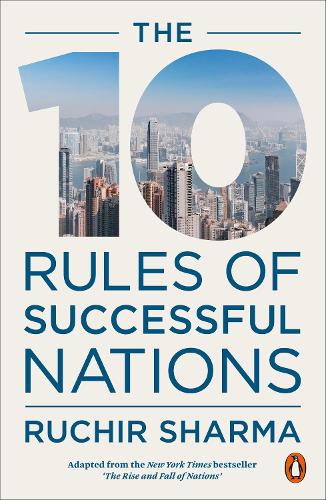
The 10 Rules of Successful Nations
(Paperback)
Publishing Details
The 10 Rules of Successful Nations
By (Author) Ruchir Sharma
Penguin Books Ltd
Penguin Books Ltd
9th April 2020
9th April 2020
United Kingdom
Classifications
Professional and Scholarly
Non Fiction
Economic growth
Economic forecasting
Development economics and emerging economies
338.9
Physical Properties
Paperback
256
Width 131mm, Height 197mm, Spine 14mm
190g
Description
A pithy guide to real-world economics, abridged from Sharma's New York Times bestselling The Rise and Fall of Nations This short primer distils Ruchir Sharma's decades of global analytic experience into ten rules for identifying nations that are poised to take off or crash. A wake-up call to economists who failed to foresee every recent crisis, including the cataclysm of 2008, 10 Rules is full of insights on signs of political, economic, and social change. Sharma explains, for example, why autocrats are bad for the economy; robots are a blessing, not a curse; and consumer prices don't tell you all you need to know about inflation. He shows how currency crises begin with the flight of knowledgeable locals, not evil foreigners; how debt crises start in private companies, not government; and why the best news for any country is none at all. Rethinking economics as a practical art, 10 Rules is a must-read for business, political and academic leaders who want to understand the most important forces that shape a nation's future.
Author Bio
Ruchir Sharma is Head of Emerging Markets and Chief Global Strategist at Morgan Stanley Investment Management. He is the author of the international bestselling Breakout Nations- In Pursuit of the Next Economic Miracles (2012), The Rise and Fall of Nations- Forces of Change in the Post-Crisis World (2016) and Democracy on the Road (2019). Sharma began his career as a writer and still contributes regularly to the Wall Street Journal, Financial Times, Foreign Affairs and other publications, and he is a contributing writer at the New York Times. One of the world's largest investors, he was named one of Foreign Affairs' Top Global Thinkers in 2012 and one of Bloomberg Market's 50 most influential thinkers in 2015.
